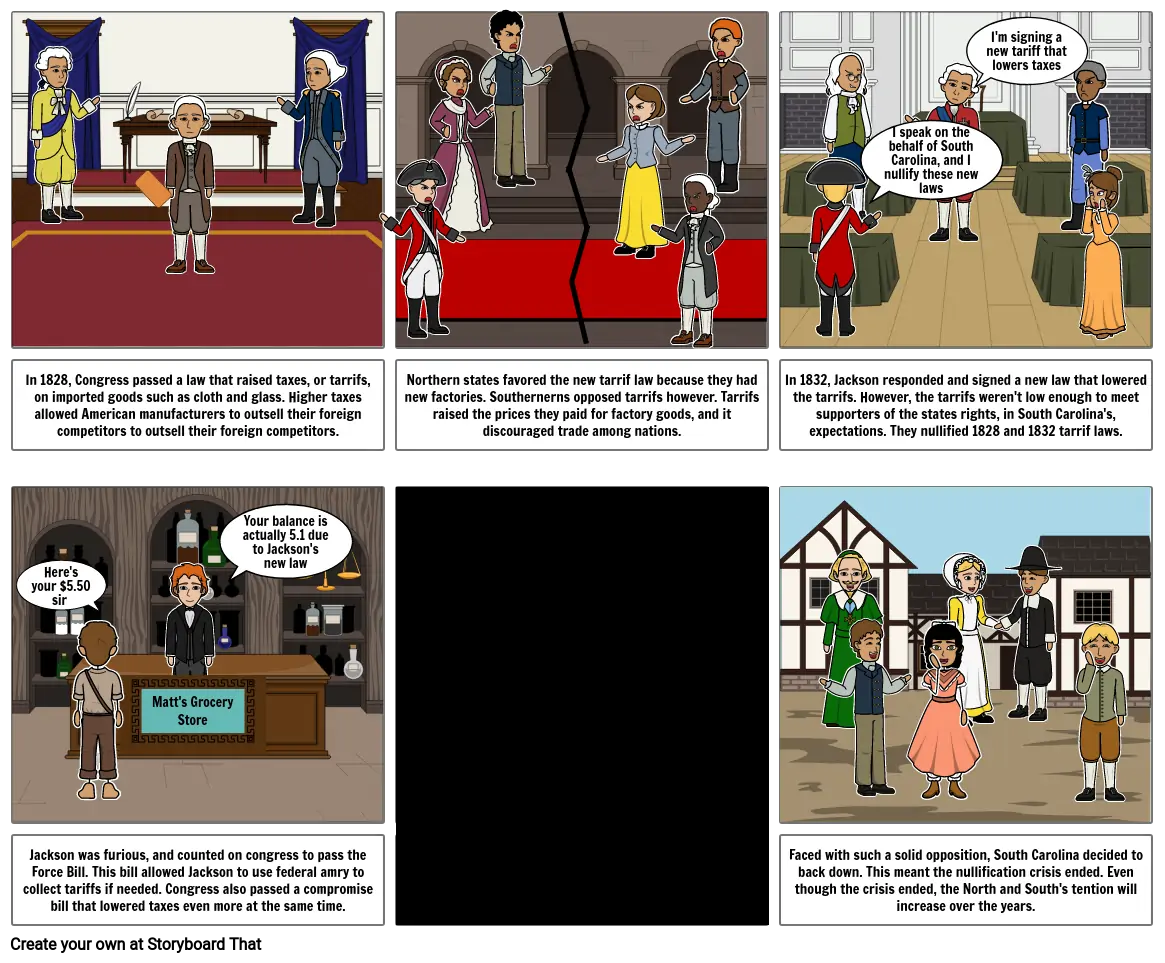The Nullification Crisis

Text z Príbehu
- I speak on the behalf of South Carolina, and I nullify these new laws
- I'm signing a new tariff that lowers taxes
- In 1828, Congress passed a law that raised taxes, or tarrifs, on imported goods such as cloth and glass. Higher taxes allowed American manufacturers to outsell their foreign competitors to outsell their foreign competitors.
- Here's your $5.50 sir
- Matt's Grocery Store
- Your balance is actually 5.1 due to Jackson's new law
- Northern states favored the new tarrif law because they had new factories. Southernerns opposed tarrifs however. Tarrifs raised the prices they paid for factory goods, and it discouraged trade among nations.
- In 1832, Jackson responded and signed a new law that lowered the tarrifs. However, the tarrifs weren't low enough to meet supporters of the states rights, in South Carolina's, expectations. They nullified 1828 and 1832 tarrif laws.
- Jackson was furious, and counted on congress to pass the Force Bill. This bill allowed Jackson to use federal amry to collect tariffs if needed. Congress also passed a compromise bill that lowered taxes even more at the same time.
- Faced with such a solid opposition, South Carolina decided to back down. This meant the nullification crisis ended. Even though the crisis ended, the North and South's tention will increase over the years.
Bolo vytvorených viac ako 30 miliónov storyboardov

